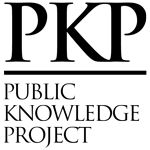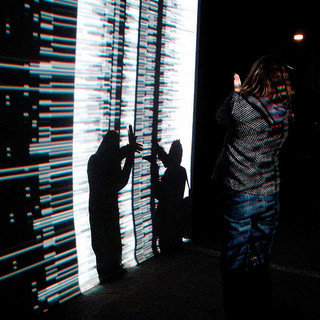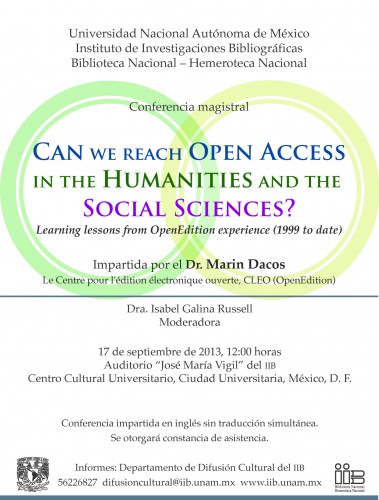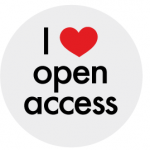This week, Elena Giglia, head of the open access programme at Torino University, is our guest editor. OpenEdition team invited her to give an account of the Berlin 11 conference. Here’s her post about the first day.

Photo by Elena Giglia, 19 November 2013.
10 years on, the Berlin Open Access conference is being held again in Berlin, to celebrate the Berlin Declaration ten years ago.
As pointed out by the opening remarks, in the last few years Open Access has contributed to important shifts in the scholarly communication framework, and has fostered a common rethinking of the whole scientific communication chain, enabling dialogue between all the players involved. OA means fast and worldwide dissemination, no barriers to access, new metrics about impact linked to each single paper, new techniques like text and data mining: in a word, OA boosts knowledge transfer and thus the creation of new knowledge. OA should be the currency in scholarly communication nowadays, but it still is not, because of lack of awareness and moreover a resistance to change, both among researchers and libraries. OA implies in fact a paradigm shift in workflows as well as in funding allocations.
New initiatives like eLife demonstrate that new forms of cooperation between funding agencies, authors and journal scientific editors are possible, and that, actually, “publication is just the beginning”, as is stated on the eLife website. In the path towards OA no author or institution can walk alone and there is a need for cooperation, mutual support and alliances. This is all the more true at the political level, where the keyword is “work in unison” to coordinate the efforts.
The first session of the conference, “Open Access on the political agenda”, was intended as an overview of recent developments in this direction.
In Germany Georg Schutte showed how research and development are seen by the government as a priority for the future of the country. OA could be the tool for scientific result dissemination. The recent law on copyright is a first step, a door opened to research access; it needs improvements, i.e. opening the door further and further in order to make OA the standard in scientific communication.
From the French perspective, Roger Genet underlined the importance of access at three levels: political, for an evidence-based and informed decision-making process; economical, as a better return on investments in research; scientific, for faster progress. France is working for a national plan towards access, in order to move from open access to open science.
Open Science and openness to publications and data played a central role in Neelie Kroes’ political agenda at the European Commission, as reported by Carl Cristian Buhr. Openness allows for examining, comparing, making new hypotheses and thus advancing. Openness is also a way to do justice both to the potential of the web and to the European taxpayers whoses taxes fund research. For science itself, “sharing” has always been the keyword, and ought to be so in the future the keyword, bearing in mind that in this domain there is no “one size fits all” solution. In any case, sharing is the pillar of any possible future open science. The idea that investing in the future of a new science is the best way to support the economy is the basis of the EU’s strong committment to openness, which applies not only to publications but also to data (not only academic data, but also public sector data, which can be exploited by apps or value-added service providers).
Heather Joseph went through the recent US developments in Open Access policies and politics focusing on driving factors. The main driver is investment coming from taxpayers, as taxpayers expect a return in terms of knowledge advances that are potentially useful for society itself, knowledge creation being an incremental process based on results. Access to results in the form of Open Access is clearly the basis of this whole process.
The Obama directive of February 2013 is a milestone as it addresses not only the access issue but also the question of re-use. All the stakeholders are now involved in discussion of the directive and its translation, in order to have sustainable embargo periods, re-use licences and the correct preservation policies: there’s still a long way to do, but the achievement is that Open Access has taken a consistent place on the national US political agenda.
The second session tried to depict “Where are we today?” from four different perspectives.
Glyn Moody approached openness from the perspective of the history of open source software. Linux, used by supercomputers, Google, and all the social networks proved that distributed, collaborative development works, that freely sharing worked better than hoarding and that, once digital, knowledge can be shared infinitely. Sharing is a sort of moral imperative. In Open Access, with the trigger being public availability of publicly funded research, the goal must be immediate access, with a ZEN approach, where ZEN stands for Zero Embargo Now. Big profits for publishers is not an argument to closing access to the majority of the world’s citizens. Publishers should make revenues from services offered in addition to content, not from the content itself, which in a digital world can be distributed at virtually zero or low expenses. The case of Red Hat, which generated billions in revenue, has to be looked at as good new business and a paradigm-shift model. Scholarly communication and the publishing system needs this sort of paradigm change in order to complete the revolution started ten years ago.
Ulrich Poeschl showed that OA is essential for an epistemic web, i.e. a web of knowledge. Open Access not only ensures access to content, but also enables and enhances old traditions like peer review. Public peer review, as conducted by the journal Atmospheric Chemistry and Physics and followers can combine quick access and thorough examination; new approaches like PLoS post-publication review are also innovative ways to exploit the potential of the web, bearing in mind that each time you correctly use the web it is always a win-win situation for all. A shift towards new forms of access and a new way of publishing is needed. Many models in OA have proven to be sustainable, so the vision for the future, trusting the basic principles of mass/energy conservation and evolution, is a conversion of subscription funds to cover the costs of OA publishing. Subscription journals and publishers will adapt or will be replaced in a true market scenario. The demand for new services and a new kind of scientific communication which really exploits the potential of the web is strong, so if traditional players are not able to offer what meets the demand, the market will go elsewhere.
Bernard Rentier, Rector of the University of Liege, underlined the key factors which made the OA policy so successful (61% of full text in the institutional archive). These factors are a strong linkage between OA deposit and internal research assessment, the offer of value-added services for researchers, and firm committment and support from the institution’s governing bodies. Data about increased visibilty are impressive: full text articles freely accessible in OA without embargo are downloaded 34 times more than embargoed ones. Perceiving this advantage in terms of article views, many researchers put more products than required into the institutional repository (40,3% are papers from before 2002, the terminus a quo of the policy).
Mike Taylor concluded by reversing the perspective: OA is not about money and costs, but about knowledge dissemination. The real cost to be considered is that of a researcher wasting his time searching papers he has no acces to: this is worth ten times the billions spent in subscriptions. And, as many said, closed access when dealing with medical data can cost lives. So, OA is about sharing content and multiplying it in a digital way, about giving justice to taxpayers who receive a return on their investment in the form of advances in knowledge, about changing the world, about a unity that erases the divide between those few who have access and the vast majority who don’t, and about accepting the reality that today distribution is free. The preliminary to this is a radical realignment of the publishing world: publishing stands for “make public” and not for erecting walls and barriers to access in order to ensure revenues. The real cost to be worried about is the wasted opportunity cost for each closed content that could be used by anyone, and in unexpected ways. So the claim again is for a common and collaborative work on policies to lead to a transition to a full open access scenario.
At the end of the day, in the wonderful venue of the Bode Museum, Haim Gertner told stories about the Holocaust and its memory, and presented the project “Gathering the fragments” about Holocaust documents. The value of openness is in the fact that a photo, a document, or whatever “piece” of information, can be of no value for one person but of immense value to another, who can interpret it and give it a meaning. A perfect metaphor for science.
 OpenEdition is proud to support the Canadian project PKP (Public Knowledge Project) and thereby contribute to the development of open source solutions for digital publishing. This partnership demonstrates the shared vision of OpenEdition and PKP to promote open access academic and scientific publishing by providing innovative and scalable professional solutions.
OpenEdition is proud to support the Canadian project PKP (Public Knowledge Project) and thereby contribute to the development of open source solutions for digital publishing. This partnership demonstrates the shared vision of OpenEdition and PKP to promote open access academic and scientific publishing by providing innovative and scalable professional solutions.









 The 23rd and 24th of september, the lithuanian presidency of the European Council is organizing at Vilnius a conference about the social sciences and humanities in the new “Horizon 2020″ research framework. To prepare the conference, a consultation has been set up before the summer, calling for the research community in Europe to send written contributions to the organizers. Serving the research communities in humanities and social sciences for almost 15 years for their digital communication and dissemination needs in open access, OpenEdition proposed the contribution published below.
The 23rd and 24th of september, the lithuanian presidency of the European Council is organizing at Vilnius a conference about the social sciences and humanities in the new “Horizon 2020″ research framework. To prepare the conference, a consultation has been set up before the summer, calling for the research community in Europe to send written contributions to the organizers. Serving the research communities in humanities and social sciences for almost 15 years for their digital communication and dissemination needs in open access, OpenEdition proposed the contribution published below.

